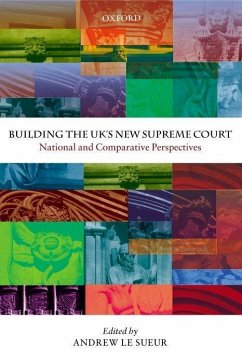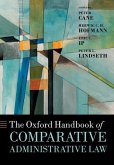In the context of the far-reaching reforms proposed for the Appellate Committee House of Lords and the Judicial Committee of the Privy Council, Building the UK's New Supreme Court considers the operation and reform of courts at the apex of the UK's legal systems. The chapters are linked by broad and overlapping themes. The first of these is the complexity of accommodating national differences within the UK into the institutional design of the new supreme court. It will be not only a court for the UK's three legal systems, and simultaneously a national institution of the whole UK, but it is also likely to be called upon to resolve division of powers disputes within the emerging system of multi-level government. A second theme is the scope for comparative lesson-learning from top courts in other legal systems: the Supreme Court of Canada, the US federal courts system, and the constitutional courts in Germany and Spain are considered. Thirdly, the connections between the UK's top-level court and other courts, especially intermediate courts of appeal, the European Court of Justice, and the European Court of Human Rights are examined.
Reforming Top Courts is a collection of essays exploring the role and future of top-level national courts. The volume considers the operation and reform of top-level national courts in the United Kingdom, Canada, the USA, Germany, and Spain, with a particular focus on the Law Lords in the UK. From this basis, the contributors consider whether national courts can draw lessons from courts in other legal systems about effective procedures and methods of working.
Reforming Top Courts is a collection of essays exploring the role and future of top-level national courts. The volume considers the operation and reform of top-level national courts in the United Kingdom, Canada, the USA, Germany, and Spain, with a particular focus on the Law Lords in the UK. From this basis, the contributors consider whether national courts can draw lessons from courts in other legal systems about effective procedures and methods of working.








